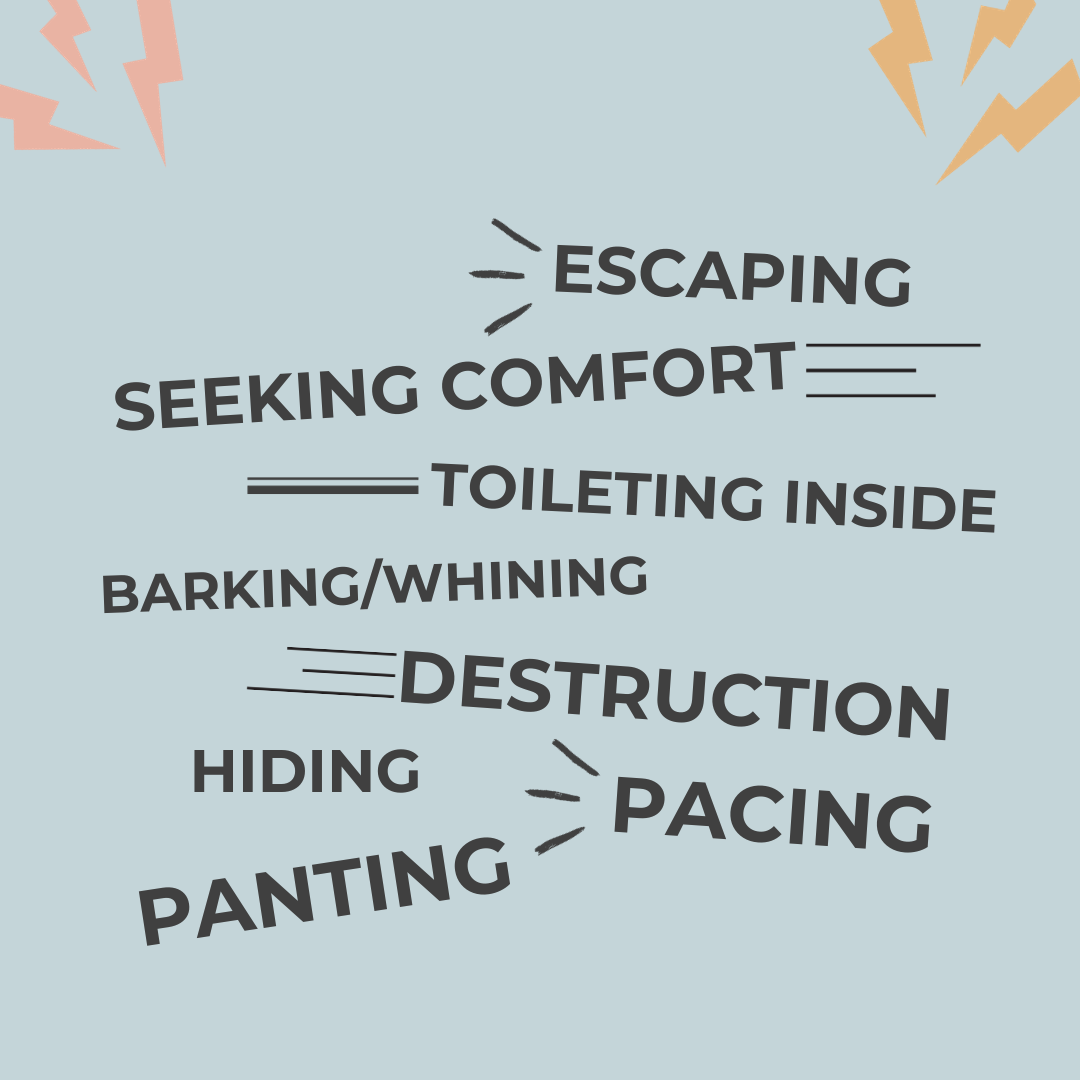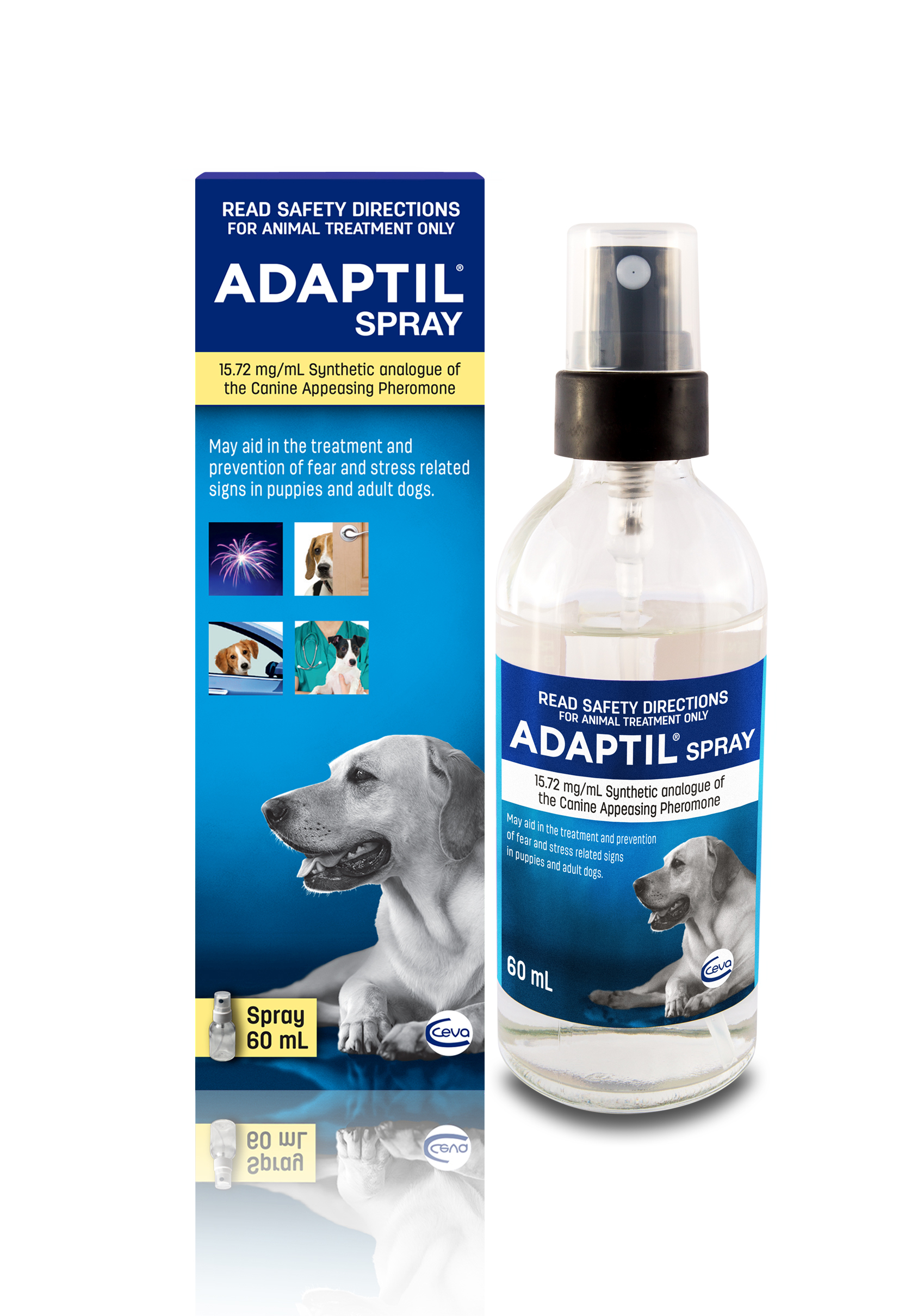Fear of loud noises can be a normal reaction in pets, however, when this fear develops into abnormally high level of stress, anxiety or phobia, this is something that requires attention.
You could probably guess the two of the most common triggers for noise phobias in pets – fireworks and storms!
As the weather starts to warm up, and holiday season approaches, fireworks and storms may be occurring more often. Pets can demonstrate a range of behaviour when experiencing sound phobias and these can include:

Noise and storm anxiety is one of the most common behaviour concerns in dogs, and unfortunately it is a progressive condition. This means if left untreated their reactions can become more severe, and the triggers can become more generalised. For example, now they may become anxious not just to the loud sounds of thunder, but also with the flashes of light or changes in atmospheric pressure associated with the thunder, or even now to other loud sounds such as traffic or sirens.
Thankfully there are a number of things we can do to support our pets during these stressful times
Pheromone therapy
- “Adaptil” is a product that mimics dogs natural appeasing pheromones, helping to decrease their anxiousness
- I recommend the Adaptil collars (available from most local or online pet shops, or can be ordered in by the clinic) as the pheromone will be with them as when they are inside or outside the house.
Providing a safe space
- This is somewhere they can go to hide during storms or loud noises
- This space must be accessible 24/7. This may mean having one inside and outside
- Usually somewhere they already try to go works best, so just try and optimise this space
- Ensure this safe space is dark and quiet, preferably away from windows and external doors. Or ensure these are well covered.
- Provide lots of blankets that they can dig under. These can also help decrease sound and vibrations associated with storms.

Thundershirts (Calm-coats, anti-anxiety wraps etc)
- These are a type of dog coat that applies gentle, constant pressure to the animal, which for some dogs can have a calming effect.
- Ensure your dog is supervised while wearing this and especially make sure they don’t over-heat.
Background music
Some dogs respond to calming background music being played as a distraction to the loud storm outside
- Meditation or gentle nature soundtracks are best
- For some dogs, this can add to the noise and be too much stimulation, so trial it and if not helping, then discontinue this method.
Medications
- Anti-anxiety medications can be extremely beneficial in addressing your pet’s fear of loud noises. Medications help your pet to relax and not get as reactive or worked up when fireworks or storms are happening.
- These are especially recommended if you find that your pet’s fear is so high that they’re not responding to common calming supplements from the pet store.
- Medication can also help your pet learn to utilise other management strategies (eg. training calm cues or how to hide in a safe place rather than pace)
- Short and long term medications are available and your vet can discuss these options with you.
Behavioural modification training
- Specific behaviour training (not obedience or trick training), such as calming cues and counter-conditioning can be used as part of long term management.
- The type of training that will be most beneficial will depend on the level of stress/anxiety/fear that your pet experiences during these situations and are best learnt with a behaviour trainer. Your vet can discuss this with you in more detail.
-
-
-
- If you would like a behaviour consultation with Dr. Nikita to talk about your pet’s anxiety, contact us on 02 49556670 or book online.
-
-
